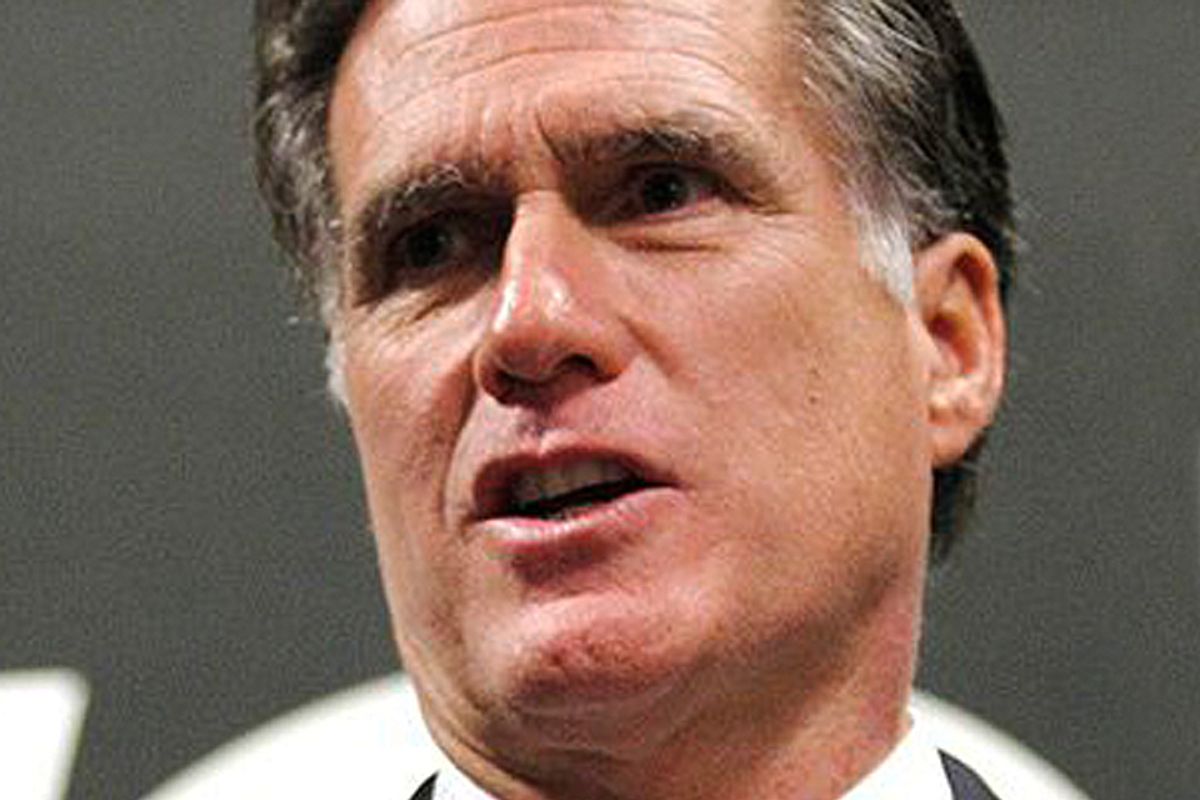Newt Gingrich, whose presidential candidacy lived without a real campaign organization for much of 2011, is now scrambling to build a team worthy of his surging poll numbers. Which helps explain how something like this can happen:
Less than a week after being tapped as Newt Gingrich's political director in Iowa, Craig Bergman resigned on Tuesday for suggesting evangelicals are ready to help God "expose the cult of Mormon."
On the surface, this is simply an embarrassment for Gingrich, who is loudly pledging to run an exclusively positive campaign. But as I wrote yesterday, when you look at Romney's struggles -- particularly in the South and other areas where fundamentalist Christians hold disproportionate sway -- it's fair to wonder how prevalent Bergman's attitude is among the Republican electorate.
After all, we've seen a steady stream of comments like his. Just a few months ago, Robert Jeffress, a conservative Christian leader from Texas, called the idea that Mormonism is a cult "is a mainstream view" among born-again Christians. "Every true, born again follower of Christ ought to embrace a Christian over a non-Christian," he said. Or think back to four years ago, when Mike Huckabee said to a New York Times Magazine reporter, "Don't Mormons believe that Jesus and the devil are brothers?" Like Gingrich now, Huckabee was surging in Iowa at the time, and while his remarks caused an uproar, they hardly hurt him in the first-in-the-nation caucuses, which he won over Romney by nine points.
By large majorities, Americans say that a candidate's religion has no impact on their vote, and whenever Romney's faith has been disparaged by a Christian leader, there's generally been loud condemnation from the media and the political world (even if Rick Perry, the candidate Jeffress is supporting, wouldn't disavow his remarks). But research from the 2008 campaign showed that when Romney's faith was mentioned to Republican voters, it made about one in five of them less likely to support him.
When Jeffress made his "cult" comment, he also made it clear that he still thinks Romney is a good and moral man, and that he'd vote for him over Obama. But in a Republican race, he'd rather vote for a fellow Christian than a Mormon, he said. How common this view is among Republican voters is hard to say, but it's worth noting that Romney, even as he has struggled to crack 25 percent in polls this year, still retains strong personal favorable ratings with Republican voters. They like him, but most of them just aren't willing to back him, at least not yet.
In 2008, 44 percent of all Republican primary voters identified themselves as evangelical Christians. The concentration was even larger (60 percent) in the key early states of Iowa and South Carolina, where Romney finished with 25 percent and 15 percent respectively. By contrast, he fared better in New Hampshire (23 percent fundamentalist Christian) and Michigan (39 percent). In that campaign, don't forget, Romney even gave a speech that addressed his religion head-on, and that seemed mainly designed to convince fundamentalist Christians to see him as one of their own.
The influence of Christian conservatives on GOP politics has hardly diminished these past four years. So while the comments of Gingrich's now-ex-aide may have been ugly and over-the-top, they may also have unwittingly revealed an important source of Gingrich's sudden leads over Romney in Iowa and South Carolina and across the South.

Shares